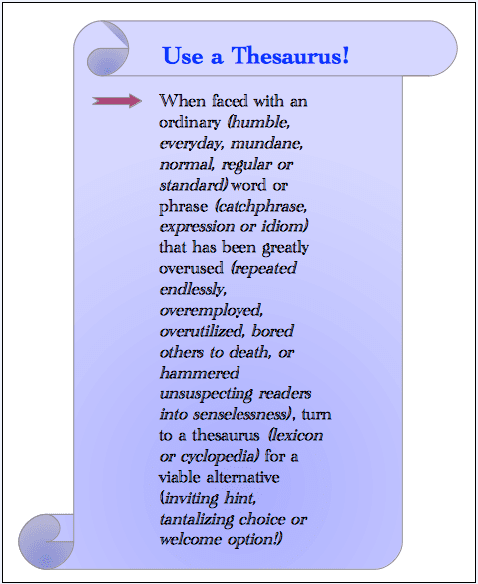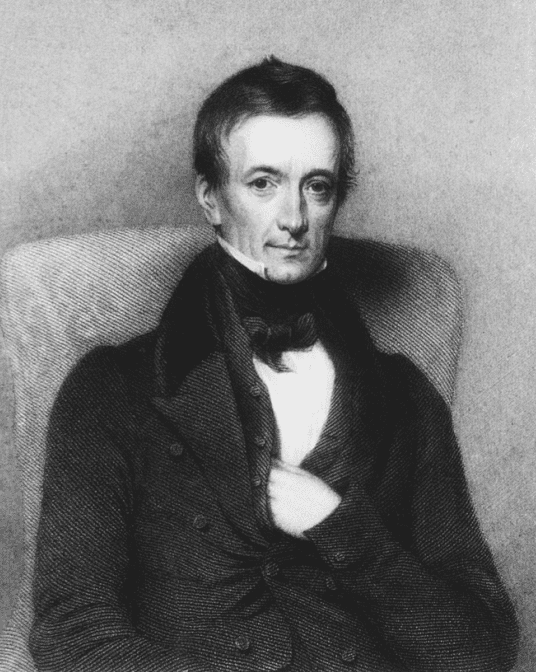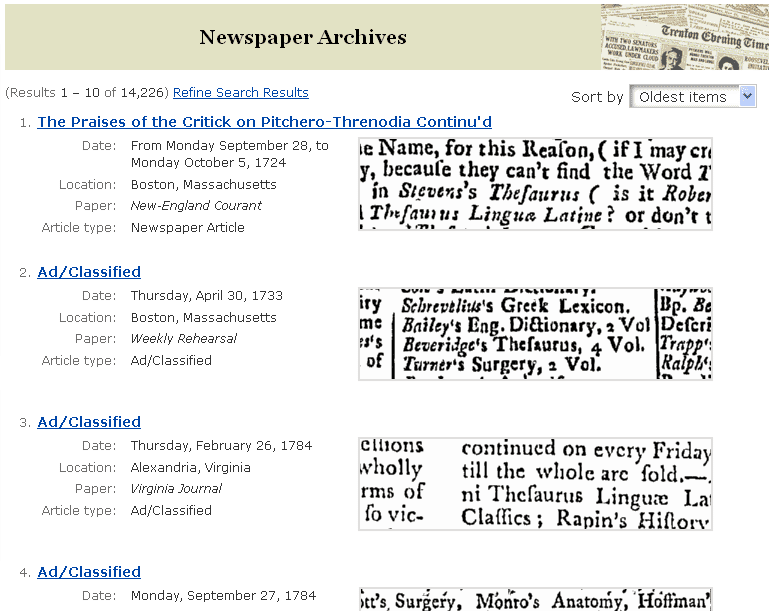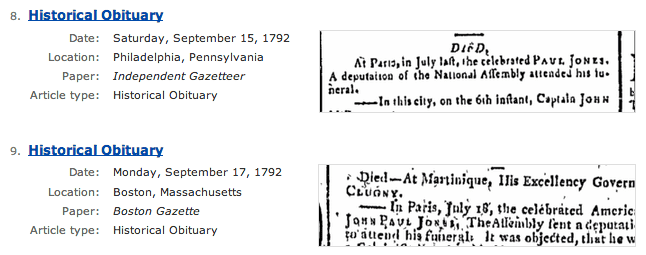Introduction: In this blog post, Mary Harrell-Sesniak talks about how important it is to try many variations when using keywords for your genealogy searches—and explains how helpful a thesaurus is for finding those variations. Mary is a genealogist, author and editor with a strong technology background.
A thesaurus is a marvelous writing tool—and an essential search tool for genealogists. Why?
When writers, and particularly journalists, go out of their way to be creative, they don’t use expected terms to describe ordinary events.

These writers turn to a thesaurus, such as the renowned (celebrated, famous, notable) lexicon compiled by Dr. Peter Mark Roget of London in 1852. His Thesaurus of English Words and Phrases revolutionized the modern construction of words—although he was not the first or the last to do so.

A search of GenealogyBank’s archives finds references to Stevens’s Thesaurus in 1724, Beveridge’s Thesaurus in 1733, a Thesaurus Medicus in 1784, Tyronis’s Thesaurus in 1812, and a whole slew of others—including clubs and organizations devoted to synonyms and antonyms.
(Note: if you are a Wikipedia contributor please expand their Thesaurus article, as not one of these earlier thesauri is mentioned in the article: http://en.wikipedia.org/wiki/Thesaurus.)
One Reason Why Search Queries Fail
Queries can fail if you don’t employ search substitutions—a variation of the word or name you are searching for might work when the original search word or name found no results.
What if the writer, who wrote about your cherished ancestor, was bored with using the same terms repeatedly?
He/she might have concluded that the terms “marry” and “married” are easily exchanged for “matrimony,” “nuptials,” “wedding” and “union.”
Obituarists (or in some cases obscurantists) are also prone to employing “passed away” or “expired” for “death” or “died.”
In many search engines (and especially on the Web) you will miss desired results if you don’t try variations.
Searching for Revolutionary War Ancestors
If you follow me on Facebook, you’ll soon learn (ascertain, discover, find) that I am an active American Revolutionary War researcher. I scour archives for patriots and frequently post transcriptions online (see Facebook’s Revolutionary War Research page). There’s even an online index, and later this year I hope to publish an updated reference of this work with the full transcriptions.
Finding early obits and articles about specific patriots can be challenging, so I started cross-referencing searches.
“Revolutionary War,” “American Revolution,” “patriot” and “pensioner” achieved great results, but then one day I found an article about a Revolutionary War ancestor that didn’t include any of those terms. Then I started reading more from the target time period, and concluded that I needed to broaden my selection of keywords.
Revolutionary War Search Keywords
Ever hear of the “shot heard around the world”?
Many think the phrase has something to do with baseball (Bobby Thomson’s home run to win the National League pennant in 1951), but its first known use was to describe the Battles of Lexington and Concord that began the Revolutionary War in 1775. This phrase, along with the “Skirmish at the North Bridge,” appear in numerous articles without incorporating the terms “war” or “American Revolution.”

Ancestor Name Variations
One day I became curious about people who served with famed Captain John Paul Jones during the Revolutionary War, and noticed that some wordsmiths of the past liked to call him Paul Jones and others referred to him as John Paul Jones. In these two obituaries from 1792, for example, one calls him “Paul Jones” and the other “John Paul Jones.”
So when searching for this famous patriot, I now search on both variations of his name.
And my keyword options don’t stop there. I’ve maintained a list of over 50 ways to search for Revolutionary War participants, including the words and phrases “entered the service of his country,” “spirit of ’76” and “Whig.”
Genealogy Keyword Search Tips
To increase the prospects of keyword search success, data-mine search engines with obvious words and consider these tips:
- Start with obvious keywords.
- Use a thesaurus to find alternatives and search on those variations.
- Don’t rely on modern-day expressions for keyword ideas.
- Observe what was written in articles of the past by reading early newspapers.
- Keep a list of what you find.
- Always think like a wordsmith of the past!
Related Keyword Search Tip Articles:



My 6th grade teacher assigned a poem or speech for us to memorize every week, including the following, which is where I first heard the phrase “the shot heard round the world.” I wonder if Emerson was the first to use it?
“Concord Hymn” by Ralph Waldo Emerson
By the rude bridge that arched the flood, Their flag to April’s breeze unfurled, Here once the embattled farmers stood, And fired the shot heard round the world. The foe long since in silence slept; Alike the conqueror silent sleeps; And Time the ruined bridge has swept Down the dark stream which seaward creeps.
On this green bank, by this soft stream, We set to-day a votive stone; That memory may their deed redeem, When, like our sires, our sons are gone.
Spirit, that made those heroes dare To die, and leave their children free, Bid Time and Nature gently spare The shaft we raise to them and thee.
Thanks for sharing your school memories.
You may be correct about Emerson penning the phrase, “the shot heard round the world.”
I did a search at GenealogyBank and found that The Concord Hymn first appeared in reference to the dedication of the Concord monument ceremony of 4 July 1837 when it was sung to the tune of “Old Hundred.”
The version the Newark Daily Advertiser of 10 July 1837, ends with a slight variation to what you wrote:
“O Thou who made these heroes dare
To die, or leave their children free,—
Bid Time and Nature gentle spare
The shaft we raised to them and Thee.”